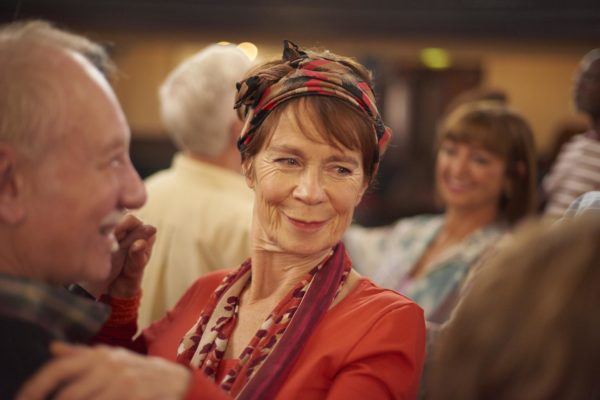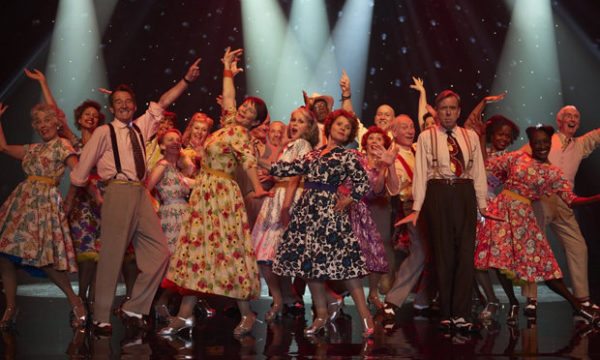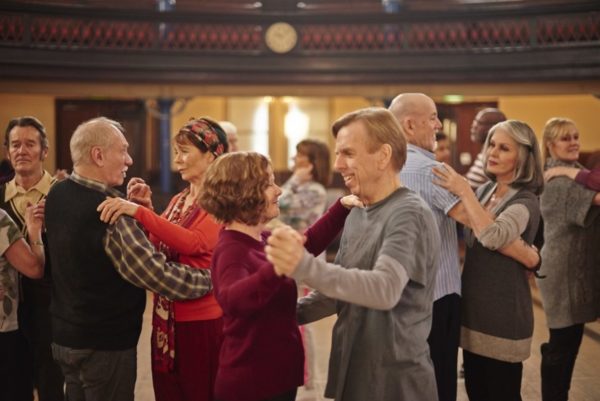We chat with director Richard Loncraine about his new film Finding Your Feet…
What was it about Meg Leonard and Nick Moorcroft’s script that appealed to you?
It was a combination of them and the script really, I liked the script. I thought that it was an interesting idea and I liked that it was about people. It is actually less plot driven than most movies I have seen recently. It was also a bright and young team to work with.
Nick and Meg were also producers on this film. I have worked with a lot of producers in my career and I have probably only liked two or three. Producers usually don’t know what you want to do, and they usually do what you don’t want them to do – they aren’t my favourite breed of people. That was not the case here. I thought that Meg and Nick were very sharp, very ambitious and very open to ideas and what the film could be. It was a combination of themselves and the script.
When you look for projects now, is it about the combination of script and the team you will be working with?
At my age you don’t want to work with people you don’t get on with. People turn into arseholes and you might start a project and get on and slowly you fall out. You should never go into a project knowing you are going to be working with arseholes, unless you still have kids to feed. It’s the same with actors – there are some actors I would refuse to work with. When I was younger I didn’t have the choice because I had kids to feed. I was always a bit fussy, but nowhere near as fussy as I am now.
You are working with a cast and crew that you have worked with in the past. How does that help on a project?
Oddly, on this one I had my son, Oliver, working on this film as the camera operator, which was interesting. Lovely and complex situation. It was a joy to see him working even when we didn’t get on. This is slightly untrue, but I would say that I live through my children. I’m still ambitious and want to succeed, and I want to get it right – but it doesn’t matter to me like it used to. Whereas when I see my kids succeed and get something right – like Joe, my second son makes Attenborough documentaries – and to see him win an Emmy for something written, produced and directed by Joe Loncraine, that is something that is difficult to beat.
You talk about your kids and their involvement in the film industry. Do you think that the industry is radically different from when you began your career?
I think it’s dramatically different. People still ask my advice on how to break into the film industry and I offer up advice, but it’s such a different world now that I’m not so sure how helpful I am. You have to really want to do it. You have to keep going and you adapt yourself.
The situation is much harder for young people now. When I was starting my career it was almost inconceivable that you wouldn’t get a job. I think it’s harder and harder. My daughter is a lawyer, and she lives in the East End of London. She has one more year until she completes her training. When she breaks down what she earns she is left with £19 a day to live on.
I think it’s harder, not just in the film industry, but rather it’s harder in general for young people.
Do you think that the film industry is opening up to the idea of stories focused on people in the second half of their lives?
The quality of acting has massively improved in TV and cinema while the scripts have got worse. If you think about how many British actors have started starring in American TV shows and you have no idea that they aren’t American, and then the other way around with the likes of Renee Zellweger with Bridget Jones. It’s not just accents, it’s the quality of acting.
Why do you think the quality of writing has dropped?
I think back to when I worked in advertising. You used to have people saying that they were running home to watch a new advert on the telly. They might run home to watch the new Levis ad, because these ads had fantastic writers on board. You had people coming out of university and going straight into copywriting because there was money in it – there isn’t any more. It’s the same with directing commercials. The financial landscape has changed.
A showrunner in TV is now very powerful, but writers do what they are told in general and don’t get treated very well. And that leads to bad scripts.
What is it about the generation of actors you have worked with on this film that leads you to think that they are better actors?
Drama schools have got better not worse, and they have dropped the faux rep accents and schools are no longer kicking regional accents out of them. I think young British actors have become a lot better at film acting, and this is combined with how Americans, rightly or wrongly, still have an inherent respect for theatre actors. The competition has also become harder, so it means we only see the best actors.
Can you tell me about the process of achieving the dance numbers that feature in the film?
We put out an open call to around a thousand professional dancers, which as a team we had to whittle down to around 15. I had to choose the 15, and many of them were ex professional dancers who knew each other from Broadway and the West End. They then became a kind of group, they were all retired, and mainly old, but we did have a few that were a wee bit younger in the 50s I think, but it went right up to 75. They meet in a pub once a month for a meal and chat. They were a godsend to have.
In terms of the actors, Timothy (Spall) was in Australia at the time filming, so we tried to teach him the routine over FaceTime, which didn’t go exactly to plan. Imelda is a workaholic and a little ferret, she is very talented but also ruthlessly tough with herself. Celia was a dancer originally, but she was in rehearsals for Lear. So, all told, I think we got those three to rehearse together for about three hours. We had two days for the Rome sequence, including the backstage stuff. The Piccadilly shot was done across one night and we did four takes.
How much of a challenge was the Piccadilly Circus flash-mob shoot?
It wasn’t too much of a challenge for me because I was sitting in a coffee shop watching it all happen. It was fairly insane. It was initially written to be in a railway station, but the cost of filming is horrendous, they want £50,000 before you get started. It’s actually cheaper to make a movie in New York these days. You get permission from the New York Film Commission and you can film wherever the hell you like, it’s not like that here.
What do you look for in a script?
There are certain subjects that I avoid, like sci-fi and war films, they don’t really interest me. I feel I have seen it all. I like not knowing how to do something and being challenged. Filmmaking is a wonderful combination of people and things, and that what I love. It’s always about learning about something new.
Finding Your Feet is available now on Digital Download and arrives on DVD and Blu-ray on June 25th.














